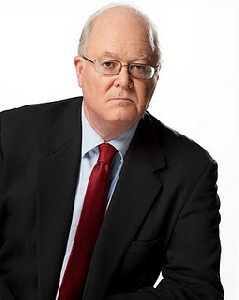Catholic VP vs. Catholic VP

Contact: Jeff Field, Director of Communications, The Catholic League for Religious and Civil Rights, 212-371-3191, cl@catholicleague.org
NEW YORK, August 13, 2012 /Christian Newswire/ -- Catholic League president Bill Donohue (photo) comments on the two Catholic vice presidential candidates:
In many respects, the Catholic community today is divided into pro-life and social justice camps. That is unfortunate, and while this division can be overstated, it remains true that most Catholic activists sit in either one camp or the other; cross-over Catholics are a rare breed.
Paul Ryan represents the pro-life wing, and Joe Biden represents the social justice wing. Indeed, both exemplify the differences, and not just on the issue of abortion. For example, Ryan's idea of freedom of choice commits him to supporting school vouchers; Biden's notion of choice commits him to abortion rights. Ryan is opposed to reinventing the institution of marriage; Biden wants to expand marriage to include two people of the same sex.
The Catholic Church opposes abortion and gay marriage. On both of these issues, Biden disagrees with the Church. Biden's defenders, e.g., Catholics who identify with social justice concerns, argue that Ryan's budgetary prescriptions make him the dissident Catholic; his ideas are said to hurt the poor. This assumes, however, that there is a clear Catholic teaching on what constitutes the best means to conquer poverty. There isn't. For instance, fidelity to the Church's preferential option for the poor can be realized by making a serious case to raise taxes, or to lower them. In effect, both Biden and Ryan can plausibly maintain that he is a champion of the poor. But only one, Ryan, can be identified as the champion of the unborn.
Not all policy issues are equal. Abortion is regarded by the Catholic Church as "intrinsically evil." Moreover, the bishops' conference has explicitly endorsed a constitutional amendment defining marriage as a union between a man and a woman. This puts Biden at a decisive disadvantage in making the case that he better represents Catholic teachings.

